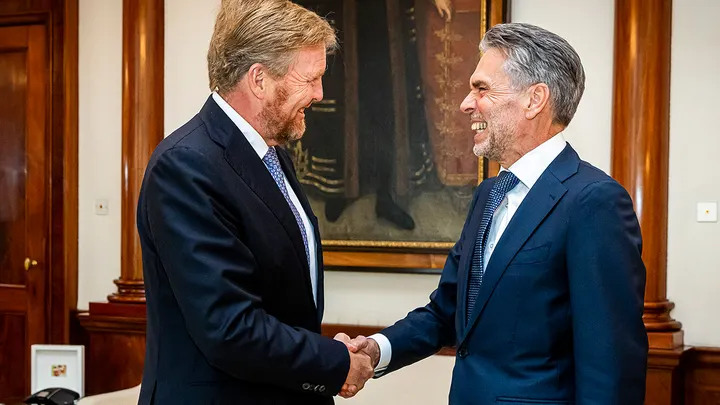The Netherlands has ushered in a new era of governance with the swearing-in of its new Prime Minister, Dick Schoof, and his cabinet. This change comes after a protracted seven-month period following elections that saw a surge in far-right sentiments.
A New Leader After 14 Years
The Netherlands has a new Prime Minister for the first time in 14 years. The 67-year-old Dick Schoof, previously the head of the Dutch intelligence agency and counterterrorism office, was officially sworn in at Huis Ten Bosch Palace. Schoof declared and promised to uphold his duties as the country’s leader, marking a significant political shift in the nation. He is joined by 15 other ministers, forming a right-leaning coalition government.
Formation of the New Coalition
The election results were dominated by Geert Wilders’ anti-immigration Party for Freedom, which won the largest share of seats. However, it took 223 days of negotiations to form the government. The coalition includes Wilders’ party, the center-right People’s Party for Freedom and Democracy, the populist Farmer Citizen Movement, and the centrist New Social Contract party. The coalition agreement, “Hope, courage, and Pride,” introduces stringent measures on asylum seekers and aims to reduce international student numbers.
Controversy and Opposition
The new government has already faced criticism for its anti-immigration policies. Protesters gathered during the swearing-in ceremony, highlighting concerns over democracy. The opposition within the coalition prevented Wilders from becoming Prime Minister, and he had to retract some of his extreme views, including a proposed ban on mosques and Islamic schools.
Unique Aspects of the New Government
For the first time since World War II, the Netherlands has a Prime Minister who is not aligned with any political party. Dick Schoof’s extensive background in national security and immigration makes him a unique leader. Additionally, other ministers were sworn in according to their departmental seniority, with Femke Wiersma, the agriculture minister, making her declaration in Frisian, the country’s second official language.
Youth and Academic Pushback
Despite the electoral success of far-right views, there is significant pushback from political youth organizations and academia. Eva Brandemann of the New Social Contract’s youth wing emphasized the need for fair and dignified treatment of asylum seekers. Mauk Bresser from the People’s Party for Freedom and Democracy highlighted the importance of timely processing refugee claims and integration opportunities.
Universities also resist the new government’s plans to cut the education budget by nearly 1 billion euros. Nivja de Jong, a professor at Leiden University, stressed the negative impact on students’ education and the broader implications for academic research.
A Summer of Planning Ahead
The new government will spend the summer translating the coalition agreement into a concrete governing plan. The political landscape in the Netherlands mirrors a broader European trend of rising far-right views, as seen in recent EU elections and the upcoming French parliamentary runoff.
As the Dutch government settles into its new roles, the country braces for significant policy changes and continued debate over immigration, education, and democracy.







